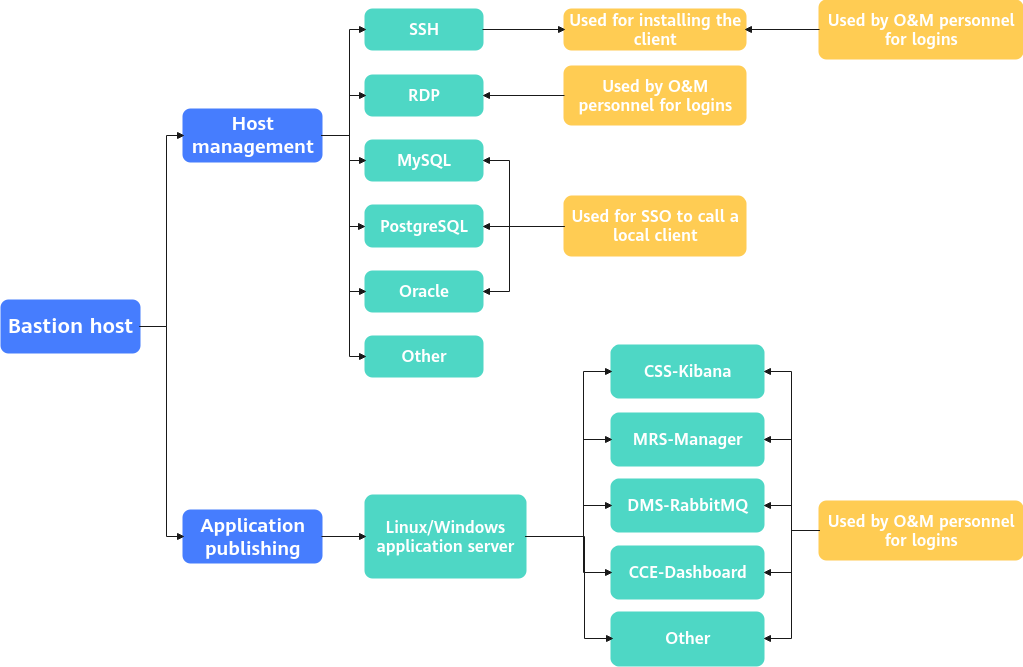Overview
A bastion host can manage hosts, applications, cloud servers (container resources), and databases. This topic walks you through how to manage hosts, databases, and applications.
A bastion host can manage the following types of hosts, databases, and applications:
- Host resources of the client-server architecture, including hosts configured with the Secure Shell (SSH), Remote Desktop Protocol (RDP), Virtual Network Computing (VNC), Telnet, File Transfer Protocol (FTP), SSH File Transfer Protocol (SFTP), DB2, MySQL, SQL Server, Oracle, Secure Copy Protocol (SCP), or Rlogin protocol.
- Application resources of the browser-server architecture or the client-server architecture, including more than 12 types of browser- and client-server architecture Windows applications, such as Microsoft Edge, Google Chrome, and Oracle tools.
Table 1 Types of resources a bastion host can manage Resource Type
OS and Protocol Type
Host resources
Supported protocols: SSH, RDP, VNC, Telnet, FTP, SFTP, SCP, and Rlogin
Supported OS types: Linux, Windows, Cisco, Huawei, H3C, DPtech, Ruijie, Sugon, Digital China sm-s-g 10-600, Digital China sm-d-d 10-600, ZTE, ZTE5950-52tm, Surfilter, and ChangAn
Application resources
- Supported Windows application types: MySQL Tool, Microsoft Edge, Mozilla Firefox for Windows, Oracle Tool, Google Chrome, VNC Client, SQL Server Tool, SecBrowser, vSphere Client, Radmin, dbisql, Navicat for MySQL, Navicat for PostgreSQL, Internet Explorer, and Other.
- Supported Linux application types: DM Tool, KingbaseES Tool, Mozilla Firefox for Linux, and GBaseDataStudio for GBase8a.
Database resources
Supported protocols: GaussDB , PostgreSQL, DB2, MySQL, SQL Server, Oracle, and DM.
Figure 1 shows the management of common hosts, databases, and application protocols and O&M login methods.
Feedback
Was this page helpful?
Provide feedbackThank you very much for your feedback. We will continue working to improve the documentation.







